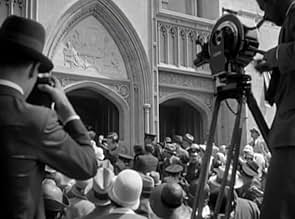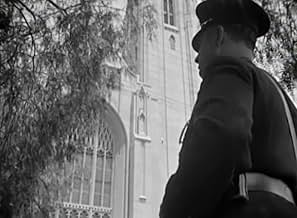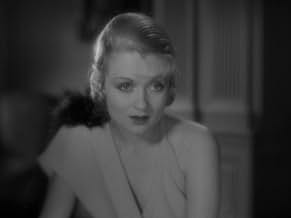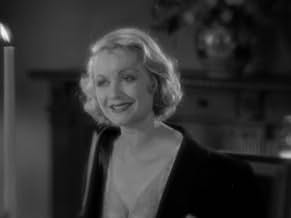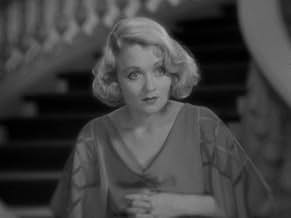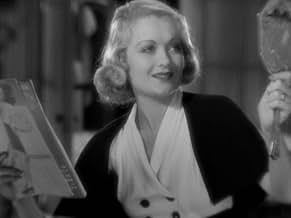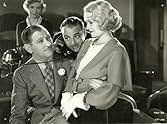AVALIAÇÃO DA IMDb
7,0/10
2,9 mil
SUA AVALIAÇÃO
Adicionar um enredo no seu idiomaThe career of a waitress takes off when she meets an amiable drunken Hollywood director.The career of a waitress takes off when she meets an amiable drunken Hollywood director.The career of a waitress takes off when she meets an amiable drunken Hollywood director.
- Direção
- Roteiristas
- Artistas
- Indicado a 1 Oscar
- 3 vitórias e 1 indicação no total
George Reed
- Undetermined Secondary Role
- (cenas deletadas)
Alice Adair
- Undetermined Secondary Role
- (não creditado)
Eddie 'Rochester' Anderson
- James - Max's Butler
- (não creditado)
Sam Armstrong
- Undetermined Secondary Role
- (não creditado)
Zeena Baer
- Secretary to Julius Saxe
- (não creditado)
King Baggot
- Department Head
- (não creditado)
Gerald Barry
- John Reed - an Actor
- (não creditado)
Floyd Bell
- Undetermined Secondary Role
- (não creditado)
Veda Buckland
- Nana - Jackie's Nursemaid
- (não creditado)
Nicholas Caruso
- Chef at Brown Derby
- (não creditado)
Lita Chevret
- Actress Filming on Movie Set
- (não creditado)
Avaliações em destaque
Another film that deserves a wider viewership and a DVD release, "What Price Hollywood?" looks at the toll Hollywood takes on the people who make it possible.
Adela Rogers St John wrote the Oscar-nominated story of a fading genius of a director, destroyed by drink, who launches one last discovery into the world. Lowell Sherman, himself both a director and an alcoholic, played the sad role that had been modeled, in part, on his own life. (Sherman's brother-in-law, John Barrymore, was also a model, as was the silent film director Marshall Neilan.) The divinely beautiful Constance Bennett plays the ambitious Brown Derby waitress who grabs her chance. Neil Hamilton, paired to great effect with Bennett that same year in "Two Against the World," plays the east-coast polo-playing millionaire who captures Bennett's heart without ever understanding her world.
George Cukor directed the film for RKO, and already the seeds of his directorial genius can be seen. Wonderful montages and double exposures chart Bennett's rise and fall as "America's Pal," and I've rarely seen anything as moving as the way Cukor presented Sherman's death scene, using quick shot editing, exaggerated sound effects and a slow motion shot. As startling as it looks today, one can only imagine the reaction it must have caused over 70 years earlier, before audiences had become accustomed to such techniques.
While the romantic leads are solid--Bennett, as always, especially so--and Gregory Ratoff is mesmerizing as the producer, hats must be doffed to Lowell Sherman for his Oscar-calibre performance. The slide from charming drunk to dissolute bum is presented warts and all, and a late scene in which the director examines his drink-ravaged face in the mirror is powerful indeed. It's hard to imagine what it must have been like for Sherman to play such a role and it was, in fact, one of the last roles he took for the screen, before concentrating on directing--then dying two years later of pneumonia.
When David O. Selznick made "A Star is Born" for United Artists five years later, four years after leaving RKO, the RKO lawyers prepared a point-by-point comparison of the stories, recommending a plagiarism suit--which was never filed. The later movie never credited Adela Rogers St John or any of the source material of "What Price Hollywood?" for its own screenplay, which was written by Dorothy Parker from, supposedly, an idea of Selznick's.
"What Price Hollywood?" is a great source for behind-the-scenes tidbits--Cukor fills the screen with images of on-set action (or inaction), with various crew waiting about as they watch the film-in-a-film action being filmed. This movie works as history and as innovation, but it also works on the most important level, as a well-told story.
Adela Rogers St John wrote the Oscar-nominated story of a fading genius of a director, destroyed by drink, who launches one last discovery into the world. Lowell Sherman, himself both a director and an alcoholic, played the sad role that had been modeled, in part, on his own life. (Sherman's brother-in-law, John Barrymore, was also a model, as was the silent film director Marshall Neilan.) The divinely beautiful Constance Bennett plays the ambitious Brown Derby waitress who grabs her chance. Neil Hamilton, paired to great effect with Bennett that same year in "Two Against the World," plays the east-coast polo-playing millionaire who captures Bennett's heart without ever understanding her world.
George Cukor directed the film for RKO, and already the seeds of his directorial genius can be seen. Wonderful montages and double exposures chart Bennett's rise and fall as "America's Pal," and I've rarely seen anything as moving as the way Cukor presented Sherman's death scene, using quick shot editing, exaggerated sound effects and a slow motion shot. As startling as it looks today, one can only imagine the reaction it must have caused over 70 years earlier, before audiences had become accustomed to such techniques.
While the romantic leads are solid--Bennett, as always, especially so--and Gregory Ratoff is mesmerizing as the producer, hats must be doffed to Lowell Sherman for his Oscar-calibre performance. The slide from charming drunk to dissolute bum is presented warts and all, and a late scene in which the director examines his drink-ravaged face in the mirror is powerful indeed. It's hard to imagine what it must have been like for Sherman to play such a role and it was, in fact, one of the last roles he took for the screen, before concentrating on directing--then dying two years later of pneumonia.
When David O. Selznick made "A Star is Born" for United Artists five years later, four years after leaving RKO, the RKO lawyers prepared a point-by-point comparison of the stories, recommending a plagiarism suit--which was never filed. The later movie never credited Adela Rogers St John or any of the source material of "What Price Hollywood?" for its own screenplay, which was written by Dorothy Parker from, supposedly, an idea of Selznick's.
"What Price Hollywood?" is a great source for behind-the-scenes tidbits--Cukor fills the screen with images of on-set action (or inaction), with various crew waiting about as they watch the film-in-a-film action being filmed. This movie works as history and as innovation, but it also works on the most important level, as a well-told story.
This early effort by director George Cukor had such resonance that it was remade three times as A STAR IS BORN, so it lives on to satisfy the curiosity of those who admire one or more of the later productions. What holds it up after all these years are a strong and realistic performance by Lowell Sherman as a successful Hollywood film director whose alcoholism is destroying his career, decent and sometimes brilliant work by ever-stylish Constance Bennett as the ambitious waitress who becomes an overnight star, beautiful and poetic montages by Slavko Vorkapich, a generally witty and clever script by a team of about eight writers including Adela Rogers St. John and Gene Fowler, and some beautifully directed intimate scenes including the opening in which Bennett dresses for work, copying the beauty tips advertised in the fan magazine she is reading. Highlights: the screen test in which Bennett repeatedly fails to gracefully descend a staircase, deliver one line and then react to the sight of a dead body outside camera range; the filming of a nightclub scene in which Bennett delivers a love song in French (a la Dietrich in MOROCCO) as she strolls among the seated patrons. When you think about it, Bennett is really too sophisticated and worldly for this part, which is why it worked much better for the homespun Janet Gaynor five years later. It really doesn't make sense that a lady who can handle herself with complete ease after being dragged to a movie premiere and unexpectedly shoved in front of a microphone would suddenly turn into a klutz in front of a movie camera in a studio screen test. At one point Bennett is seen to converse in flawless, fluent French and we can only wonder how a lowly waitress with naïve dreams of movie stardom ever got that kind of linguistic education. The only explanation could be that the casting of Bennett required compromises. In any case, her natural charm carries her through.
At times the story drags. Neil Hamilton as the stuffed shirt husband adds to the dead weight. The sound quality in the outdoor scenes is weak and tinny. Gregory Ratoff as a studio chieftain has fun but his accent is a bit too thick given the limitations of the recording techniques of the time. Louise Beavers, as always, enlivens her small role as Bennett's maid.
At times the story drags. Neil Hamilton as the stuffed shirt husband adds to the dead weight. The sound quality in the outdoor scenes is weak and tinny. Gregory Ratoff as a studio chieftain has fun but his accent is a bit too thick given the limitations of the recording techniques of the time. Louise Beavers, as always, enlivens her small role as Bennett's maid.
One of George Cukor's better films, featuring Lowell Sherman, as an alcoholic director, Gregory Ratoff as a Sam Goldwyn like producer, and Constance Bennett playing the starstruck waitress at the Brown Derby. The film also includes Eddie "Rochester" Anderson as Sherman's sly butler. An early RKO film, it shows the working of the studio, somewhat satirically but lovingly. Also, a world premiere at Grauman's Chinese Theater. It should be better known .
The direction of George Cukor for this film is excellent. The three lead characters have three charming, yet completely different personalities. The great talent of George Cukor doesn't allow the energy of any of his characters to wane. The performance of Lowell Sherman only adds to the wonderful script, and only the innocence of Constance Bennett is able to carry the role of an aspiring starlet that makes it so believable. Neil Hamilton (later to play the 'Commissioner' on the "Batman" TV series of the mid-1960's) is excellent as the 'love interest'. But it is Lowell Sherman who steals nearly every scene in the wonderful jewel of a film. The story of this film is like many real-life stories of almost everyone who has ever worked in Hollywood - either in front of the camera or behind the lens. To me, this IS the original "A Star is Born", and that is why it is one of my favorite films of all time. From the appearance of Eddie "Rochester" Anderson to the Brown Derby to the scenes of the night life of the early days of Hollywood, "What Price Hollywood?" will always be a memorable film for me.
"What Price Hollywood?" is one of my favorite films of the 1930s. With loads of drama, glamour to spare, and some romance too, this movie is one of the best behind-the-scenes looks at the old Hollywood studio system that was ever made. Constance Bennett, looking her radiant best, plays the lead role with finesse. Lowell Sherman also turns in a powerful performance as a washed-up director. This movie was the basis for "A Star is Born." All in all, one great film.
Você sabia?
- CuriosidadesThis film bears such a striking resemblance to Nasce uma Estrela (1937) that it is often considered "the original version" of that often remade classic. In fact, David O. Selznick, who produced both this film and Star is Born, was threatened with a lawsuit by this film's writers, claiming plagiarism.
- Erros de gravaçãoWhen the screen shows a newspaper gossip column, part of an item relating a joke about a Jewish boy and a bird can be seen. Several months later, another gossip column shows the identical item.
- Cenas durante ou pós-créditosThere is a "by" credit to Gene Fowler and Rowland Brown after the title shows, but there is also a "screenplay by" credit to Jane Murfin and Ben Markson, without leaving any clear explanation or context as to what "by" actually means. But the reality was that Fowler and Brown wrote the real screenplay, with Murfin and Markson providing the continuity.
- ConexõesFeatured in David O. Selznick: 'Your New Producer' (1935)
- Trilhas sonorasThree Little Words
(1930) (uncredited)
Music by Harry Ruby
Part of a medley played during the opening credits
Principais escolhas
Faça login para avaliar e ver a lista de recomendações personalizadas
- How long is What Price Hollywood??Fornecido pela Alexa
Detalhes
- Data de lançamento
- País de origem
- Idiomas
- Também conhecido como
- What Price Hollywood?
- Locações de filme
- Empresa de produção
- Consulte mais créditos da empresa na IMDbPro
Bilheteria
- Orçamento
- US$ 411.676 (estimativa)
- Tempo de duração1 hora 28 minutos
- Cor
- Proporção
- 1.37 : 1
Contribua para esta página
Sugerir uma alteração ou adicionar conteúdo ausente


